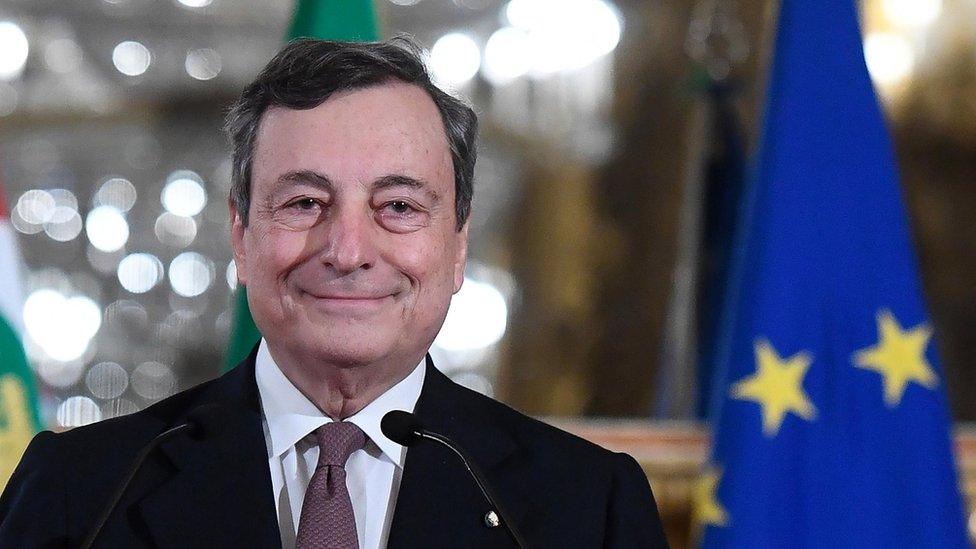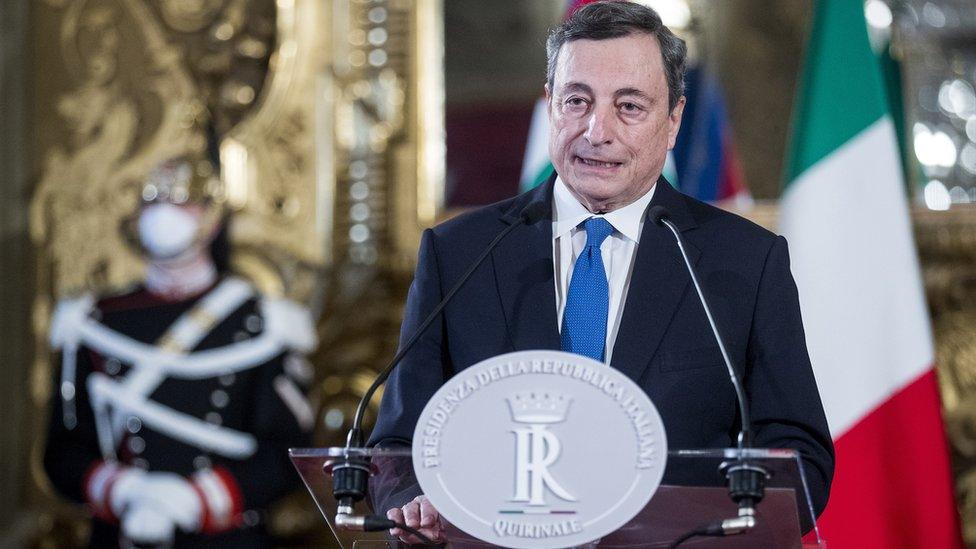Mario Draghi sworn in as Italy's new prime minister
- Published

Mario Draghi's main priority will be how to rebuild the economy after the pandemic
The ex-head of the European Central Bank, Mario Draghi, has been sworn-in as Italy's next prime minister.
Mr Draghi put together a unity government of the main political parties, following the collapse of the previous administration last month.
It was thrown into chaos amid a row over how to spend EU coronavirus recovery funds.
Italy is still grappling with the pandemic and is also facing its worst economic crisis in decades.
The country has recorded more than 93,000 deaths, the sixth-highest death toll in the world.
After receiving the support of the largest group in parliament, the Five Star Movement, Mr Draghi now has backing across the broad political spectrum.
It means he will have a large enough majority to push through his agenda.
He has already named a cabinet: a senior figure in the Five Star Movement, Luigi Di Maio, will stay on as foreign minister.
Giancarlo Giorgetti, a senior figure in the populist far-right League party, will be industry minister. Andrea Orlando, from the centre-left Democratic Party, will be labour minister.
The government faces a confidence vote next week - a formality given its cross-party backing.
An economist with experience at the highest levels of the European Union and as governor of the Bank of Italy, Mr Draghi is being seen as a safe pair of hands.
"Mario Draghi was the Italian who saved Europe, and I think now he is the European who can save Italy," former Prime Minister Matteo Renzi told the BBC's Newshour programme last week.
The previous prime minister, Giuseppe Conte, resigned in January after his party lost support for its coalition government over plans for spending EU recovery money.


Here Italy goes again, with its 67th government since World War Two.
Mario Draghi, credited with saving the euro as president of the European Central Bank at the height of the eurozone crisis, has become Italy's new prime minister with a cabinet comprising a broad base of political parties and technocrats.
Their main priority will be to work out how to spend over €200bn (£175bn; $240bn) of EU recovery funds to rebuild from the pandemic.
Nicknamed "Super Mario", Mr Draghi has significant support… for now.
But in Italy's notoriously divided and unstable political landscape, it's never clear how long that will last.

You might also be interested in:
A month into Italy's strict lockdown, some people can no longer afford to buy food
Related topics
- Published12 February 2021
